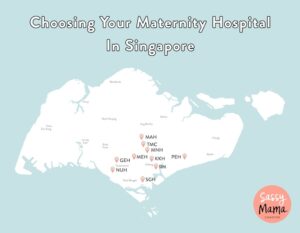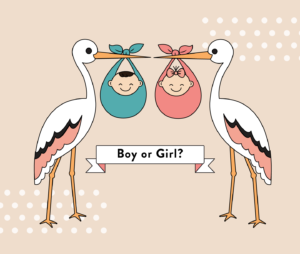
Statistics show that up to 25% of pregnancies end in miscarriage, with the majority happening in the first trimester. Remember that you’re not alone, mama; there’s a community dedicated to supporting women through miscarriage in Singapore.
I had two weeks after the stick turned pink the first time. Two blissful weeks of feeling like a fertility goddess before things started to go wrong. A sac not measuring the right gestational age. No heartbeat when it should have appeared. Growth so slow it was impossible to believe that the story would have anything other than a sad ending. The appearance of a heartbeat, but at only 48 beats per minute (one-third the rate of a healthy pregnancy). Then came the blood. “Red, thick, irrefutable. The pains are almost constant now; my body rejecting this child that I love so much” is what I wrote in my journal on 27 September, 2007.
Miscarriage is one of the most common life events we don’t talk about. It doesn’t fit with the cultural narrative of sex leading to pregnancy leading to a baby nine months later. Between 10-25% percent of diagnosed pregnancies (where the woman is aware of her pregnancy status) end in miscarriage, with the majority (roughly 80%) occurring in the first trimester. Many pregnancy websites caution expectant parents to wait until after the first trimester to share the news of a pregnancy, as that is when risk of miscarriage drops dramatically.
Read More: Singapore mama Aivonne Chong shares her story of double pregnancy loss

“The most common cause is chromosomal aberrations which can happen spontaneously,” says Dr. Wan Ling Choo, an OB/Gyn at Gleneagles. “Many women feel guilt about miscarrying. Despite telling them otherwise, they tend to think back on situations that could have caused the miscarriage and feel guilty that they could have done something to prevent that. I try to reassure and convince them that the miscarriage is not their doing.”
Dr. Alina Tan, co-founder of the Pregnancy and Infant Loss Support Group Singapore and a mother who has also experienced miscarriage adds, “This is not your fault. It isn’t because you had second thoughts about being ready to have a baby, or had a glass of wine. It isn’t because you went dancing or took a flight.”
Dr. Viveka Zawisza, an OB/Gyn at Beth Israel Deaconess Hospital in Boston (USA) says “most women will complete a miscarriage without needing medication or surgery; this means a lot of potentially heavy vaginal bleeding and severe cramping that can go on from a few days up to a couple of weeks. It’s important for women to keep their gynaecologic healthcare provider informed of their symptoms in case anything goes beyond the normal expected course of events. It’s unlikely, but can happen that a woman may not complete a miscarriage on her own. She may never bleed or cramp, or she may not stop bleeding or cramping. In both of these instances she may need medication or a minor surgical procedure to remove the pregnancy.”
For some women, miscarriage is a disappointing roadblock on the path to a live birth that they recover from quickly. For others, the wounds make take months or years to heal. Dr. Tan urges you to listen to your own needs, saying “You are allowed to grieve this baby,” rather than to well-meaning people who tell you just to move on and forget about the pregnancy you lost. “It’s okay to feel ashamed, embarrassed, sad, regretful — whatever it is that you’re feeling,” adds Dr. Zawisza.

I asked a number of women who experienced loss how they memorialised their loss. Dr. Tan has a special piece of jewelry that reminds her of the lost pregnancy. Carla M. held on to ultrasound photos and became involved in a pregnancy loss board online. Ali W. planted a tree to honour her lost child. I have the first few rows of a baby blanket my mother had begun to make when I had told her I was pregnant.
How very softly you tiptoed into my world. Almost silently, only a moment you stayed. But what an imprint your footprints have left upon my heart.
– from “Little Footprints”, a poem about pregnancy loss by Dorothy Ferguson
One miscarriage is not indicative of a problem with your body. There is no suspicion of infertility or reproductive abnormalities until you have multiple consecutive miscarriages. That said, pregnancy loss can affect how you feel about pregnancy. Carla M. said, “[My miscarriage] shattered my innocence. With future pregnancies, I was terrified something would happen.”
Ali W. agreed, saying “Somehow I just didn’t believe it could all work out the next time around and it took until well into the second trimester for me to start to trust my body and enjoy the pregnancy.” Personally, I sought out talk therapy to cope with my feelings of anxiety in my pregnancies following my miscarriage.
After a miscarriage your doctor will advise you as to when it is medically safe to start trying to conceive again. You may also want to take some additional time to emotionally prepare, and there is no shame in taking that time. Although no actions can guarantee that you will not experience pregnancy loss in the future, women who are planning a pregnancy are advised to lead a healthy lifestyle and take a multivitamin with folic acid.
Silvia Wetherell, a psychological counsellor at The Choolani Clinic who frequently works with couples experiencing loss and other pregnancy difficulties, offered the following tips for those experiencing grief and trauma:
“Some stillbirth experiences are so emotionally overwhelming that professional help is highly recommended to treat the trauma of those events. Some of the worst memories include the shock of being given the news during a medical consultation, the delivery experience, the baby being taken away or even the cremation of the body. Some parents may develop PTSD with flashbacks, sleep disorders, severe anxiety and other trauma responses following the loss.
Couple Support: Closeness and Respect for differences
Sometimes one of the biggest challenges during the grieving period relates to the couple feeling disconnected. Often the woman feels like her partner has “moved on” and is “back to normal as if nothing has happened” when it simply means that their way of grieving just looks quite different. Yes, the woman who has had the physical experience of pregnancy can be much more attached to the developing fetus / baby and yet men can really struggle to process these events, putting on a brave façade to “be strong” for their partners. I encourage couples to be respectful of each other’s way of processing the loss, avoid assuming they know how their partner is feeling – aka “mind-reading” – and talk openly and kindly with each other.
Triggers
Pregnancy loss can bring up some painful feelings of sadness, anger and envy. For example, if there is a friend who has just had a healthy baby or is complaining about her tiredness as she waits to deliver. Go gentle with your heart: while it is important not to isolate yourself socially, maybe you don’t have to attend that baby-shower. Take small steps and surround yourself with supportive friends who are accepting and with whom you can be open about your feelings.
Grieve your way, not the way “you’re supposed to”
Whether you cry every morning in the shower or take your grief to the gym; maybe you go watch a funny movie or take a yoga retreat – you are unique person and so please respect your wants and needs, there is no right away. The only caution would be around continuous avoidance of emotions and thoughts of the loss as a strategy for coping or withdrawal from most pleasurable activities and friends. Some couples are keen to try again very soon after the loss to help generate hope and optimism about the future while some need many months to make sense of their loss.
Resources for pregnancy loss in Singapore:
- NUH Women’s Emotional Health Service
- KK Hospital Women’s Mental Wellness Service
Both hospitals offer a multidisciplinary team including psychiatrists and counselors. They take self-referrals, the contact details are in the link. - NUH Recurrent Pregnancy Loss Clinic
- KKH Recurrent Pregnancy Loss Clinic
- Child Bereavement Support (Singapore)
- Pregnancy and Infant Loss Support Group Singapore
This closed Facebook group is for women who have experienced loss. It is a closed group to maintain the privacy of members, and as such isn’t as active as the online forums. - Silvia Wetherall is a Registered Counsellor and Psychotherapist who specialises in maternal mental health
- Mindful Space pregnancy loss support group.
- Doulas of Singapore
- Angel Hearts
 View All
View All


 View All
View All


 View All
View All

 View All
View All
 View All
View All


 View All
View All








